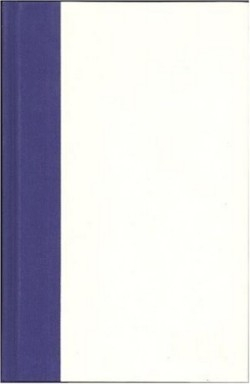The Chinese Garden
In 1962, a time in U.S. history when gay fiction was banned and gay studies unheard of, Manning wrote a novel about sexual awakening set during an even darker age, the late 1920s. Now re-issued in its first edition since 1984, Manning’s daring lesbian classic still smolders under its covers, continuing to challenge antiquated notions of morality and evil four decades after its original publication.
Rachel Curgenven is a sixteen-year-old student at Bampfield, a British girls school whose “ideal was designed to turn us into English gentlemen, sans peur et sans reproche” by “reducing our femininity to unnoticeable proportions.” Conditions at the school are cold and spartan, similar to Jane Eyre’s Lowood, but Manning’s descriptions of the pervasive masculinity of the female staff at Bampfield serve to show a pronounced sexual and homoerotic atmosphere. Rachel may be too naïve to interpret the meaning of a late night rendezvous between the headmistress and a teacher, but the reader is not, and when a teacher discourages her friendship with Margaret, a closeted lesbian, the school’s motivations are called into question.
Margaret is a force in the novel, pointing the studious Rachel to new experiences, such as sneaking away to a hidden Chinese garden beyond the school’s boundary. The garden is a place of purity and freedom for Rachel, but it is also a symbol Manning deftly uses to examine social morality. Margaret’s act of introducing a copy of Radclyffe Hall’s The Well of Loneliness, a famously scandalous novel about love between women, is like taking a piece of forbidden fruit from the tree of knowledge. Having sinned, the headmaster banishes Margaret and her lover from the garden, and Rachel, now a school prefect, must decide whether she will stand for the school’s hypocrisy.
The literary narrative darts between third person and Rachel’s first person as an older woman, offering the protagonist wisdom of hindsight, but also blurring the line between author and character. In this edition’s superb afterword, Patricia Juliana Smith proposes the novel is autobiographical, since Manning was a teacher and, later, headmistress of a girls’ school. Also, the author of six novels, Manning wrote in subtle prose that is as expressive as it is disquieting, and perhaps above all, important.
Reviewed by
Rebecca Rego
Disclosure: This article is not an endorsement, but a review. The publisher of this book provided free copies of the book to have their book reviewed by a professional reviewer. No fee was paid by the publisher for this review. Foreword Reviews only recommends books that we love. Foreword Magazine, Inc. is disclosing this in accordance with the Federal Trade Commission’s 16 CFR, Part 255.

